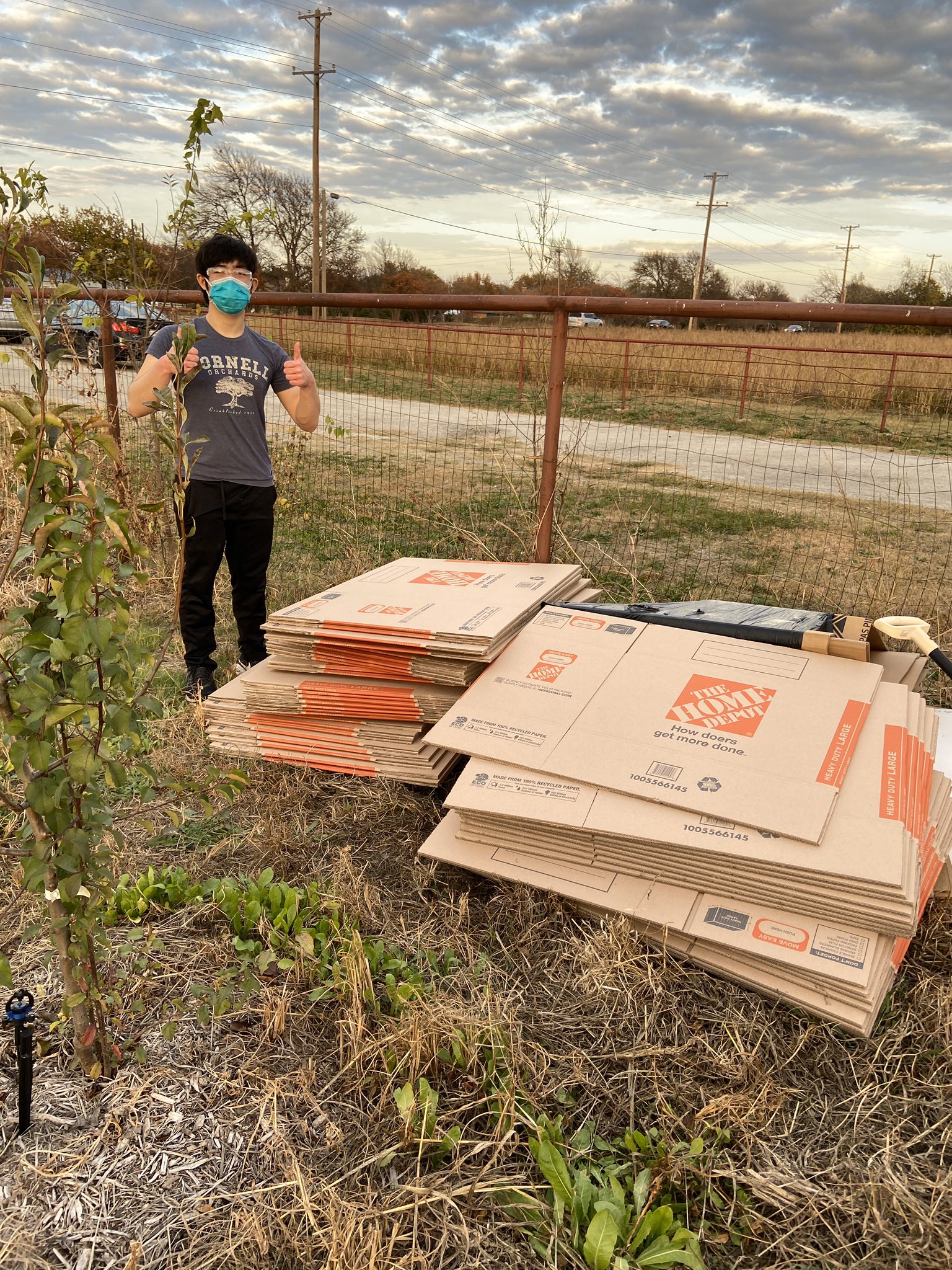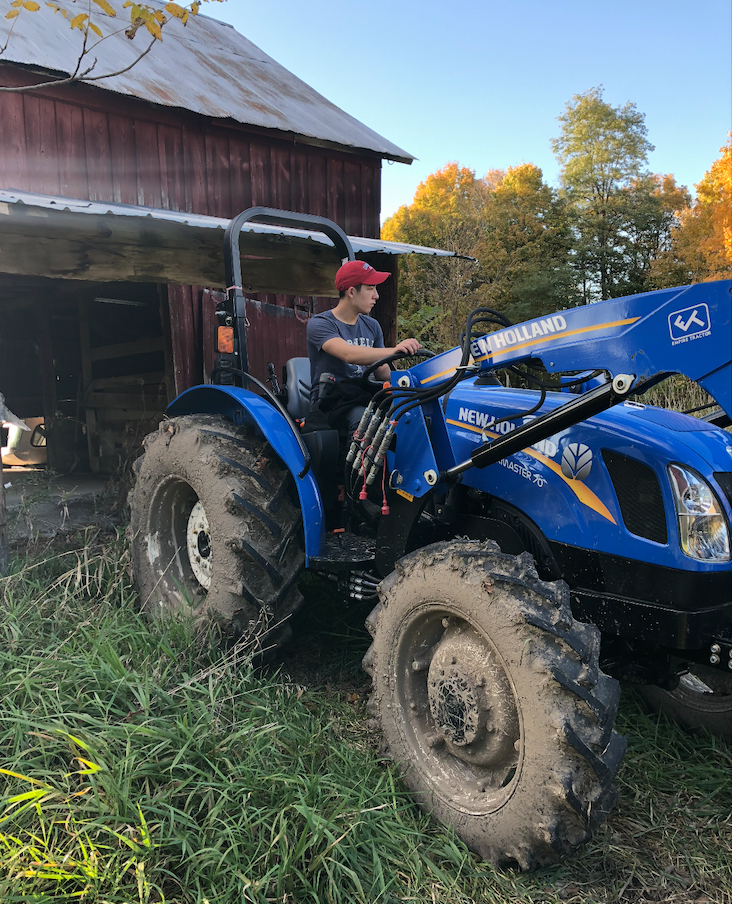It’s not every day that you meet a high school student from Texas who is as passionate about organic farming as Andrew James. We had the privilege to talk with Andrew recently about why he cares so deeply about growing food in a way that supports a resilient food system and why he believes research is a critical part of the puzzle.
Andrew’s story may be unique because of his age, but his message is universal. We ALL need to be part of building solutions that foster healthy ecosystems and people. With your support, we can greatly increase our impact and provide the necessary resources to help folks like Andrew be even more successful in their pursuits.
Read his story below.
For me, it all started with a peach.
Five years ago, my dad, with good intentions, planted two peach trees and two pear trees in the hard clay soil of our backyard in a town north of Dallas, Texas. He did not do anything to care for them besides a little mulch. He also did not fertilize or apply herbicides; in a way, he planted them and let nature take over. They struggled. But they survived.
Two years later, one of the peach trees grew a few fruits. They were not pretty, but it was the most delicious fruit I have ever tasted. As I savored the fruit, I looked at the one-foot-wide strip of dead Earth inside our fence line where the concoction of synthetic fertilizers and herbicides applied by our neighbor spilled into our yard. The stark contrast of our yards helped me realize that their search of a green Bermuda lawn from May until September comes at a heavy cost.
Non-organic farming and agriculture is the epitome of short sightedness. Short term monoculture must be propped up by unnatural and harmful means. Nature does the hard work. Nature performs the most complex and interwoven magic on the land. We just need to provide the ingredients and conditions to allow her to do so.
After that revelatory moment, I studied soil health and microbes, polyculture, organic farming, and permaculture designs. I designed and implemented my own experiments at the one-third acre of land in our backyard. Over the past three years, our backyard has become a year-long green haven of diversity. Our once clay soil now supports a polyculture of clover, vetch, daikon, and buckwheat understory. Over seventy-five fruit trees and nitrogen fixing bushes provide ample flower opportunities for the local bees. In a word, in just three years, we have dramatically increased the tilth of the land by providing the right ingredients to nature. We did not always get it right, but we learned with each step.
This activity inspired my friends at my public school as well. Last year, our teachers and administrators were so interested that they donated 1 acre of school land for use in our polyculture organic orchard. We have several faculty advisors involved in the project as well.
I love how OFRF supports people like me. Organic farming does not mean we let nature take over and do everything. To me, it means working with and understanding the land, its plants, microbial life, and animals for solutions to help nature work even better. We do this most effectively when we make informed decisions and perform research. The result is sustainable agriculture that is full of nutrients and taste and devoid of chemicals that harm our bodies and environment. It is a way of life that fosters rather than destroys the delicate balance of life on our planet.
As a high school Junior, I am excited to attend a University that offers an agricultural program so that I can learn even more about the complexities of organic agriculture. After all, life on our precious planet depends on a sustainable and wholesome interaction.
Andrew James, 17 years old
Dallas, Texas




